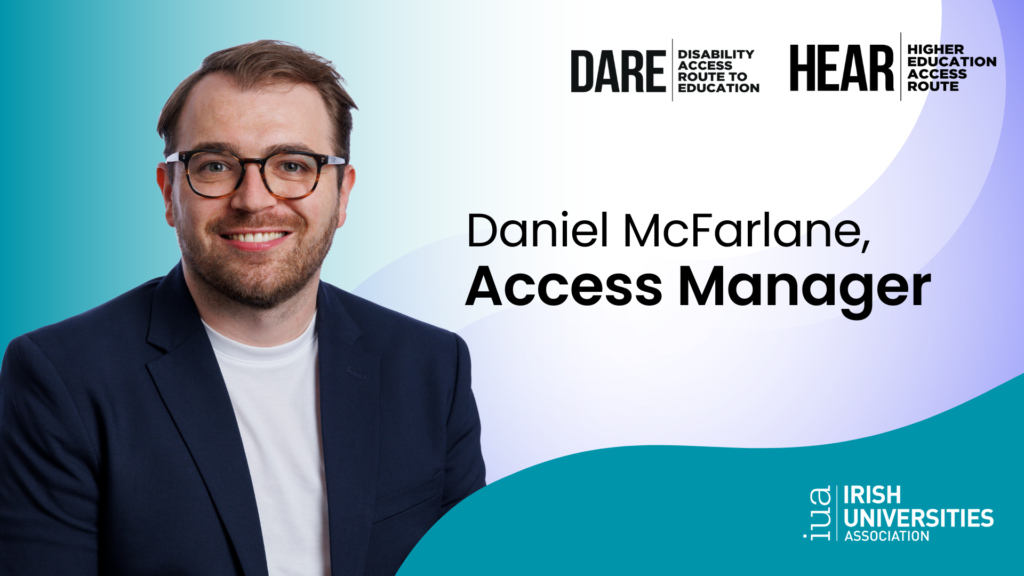
We’re launching IUA Insights – What we do and why it matters – a series of articles highlighting our key services and projects, written by the experts behind them!
From behind-the-scenes insights to real-world impact, this series will showcase what we do, why it matters, and how it benefits others.
Kicking things off, we hear from Daniel McFarlane…
Since 2009 the Disability Access Route to Education (DARE) and the Higher Education Access Route (HEAR) have played a critical role as national pathways to access higher education with nearly 20% of all CAO applicants applying through these schemes each year.
Recently, the HEAR scheme has been redeveloped, updating it to reflect the contemporary landscape of disadvantage in Ireland while aligning with the targets set by the National Access Plan 2022–2028. These developments will see equitable and targeted approaches for students from homeless, young parent and Traveller and Roma backgrounds added to the scheme and will be live for college entry in 2026. And we are working to enable SUSI to verify applicants for the HEAR low income and means-tested social welfare criteria from 2027, using the same criteria as for the SUSI grant. This will simultaneously lift the administration burden from students and facilitate the wraparound services we know are crucial to student progression and success. Delivering these changes has been complex, but necessary to meet the need and reality of educational disadvantage in Ireland today.
Initiatives like HEAR remain unique both in European and international contexts, not only for the educational opportunities they provide to socially disadvantaged groups but also for their equitable measures tailored to each group’s specific needs and cultural contexts. These schemes operate in collaboration with public service and educational bodies, including Revenue, the Department of Social Protection, Túsla, the Health Service Executive and the Department of Education.

As the first in my family to attend college, working in Access remains a deeply personal endeavour for me. When I came home to tell my parents I wanted to study Film and English Literature at Trinity College Dublin – at a time when only 13% of students in my area progressed to higher education – they said, “Go ahead.” I entered TCD through the HEAR scheme, and today, I am in the unique position of running the very scheme designed for students like me.
Despite the gains made within the last 30 years of Access, perennial issues such as core funding, student housing and inclusive guidance for specific social groups in post-primary remain a crucial issue that effects daily life in Access services. I believe these complex issues will be those of my generation to solve.
The operation, membership, and governance of these schemes remain a collective and democratic effort with our 21 participating HEIs, while the Central Applications Office (CAO) manages their administration and assessment. Working together, I am confident Access can rise to the challenge.
– Daniel McFarlane, Access Manager at the IUA, with leading responsibilities for the DARE and HEAR access routes.